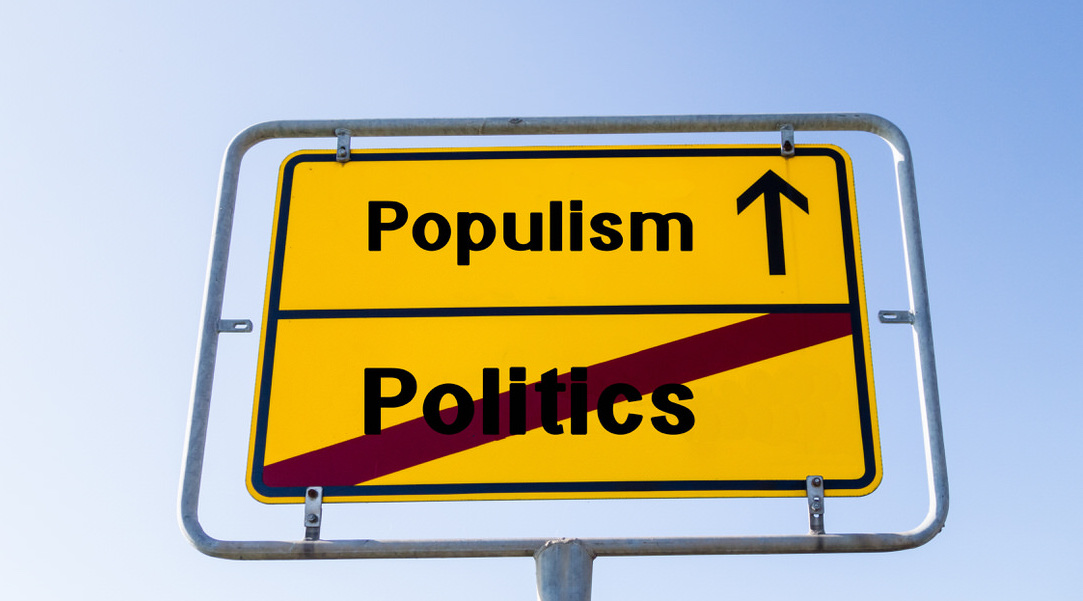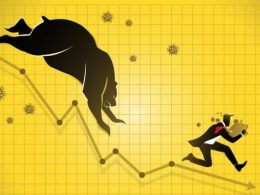by Douglas J. Peebles, Eric Winograd, Fixed Income AllianceBernstein
Summary
• Oftentimes, populist expectations lean a little bit more left in the political spectrum.
• But we've seen it both left and right in many different countries, both developed and emerging.
• Restrictive trade policy is a classic response to populism. So is restrictive immigration policy.
Transcript:
DOUG PEEBLES: It’s sort of hard to exactly define populism. Oftentimes, populist expectations lean a little bit more left in the political spectrum. But we’ve seen it both left and right in many different countries, both developed and emerging.
ERIC WINOGRAD: Yeah. You know we use populism as sort of a catchall for political movements that arise when a segment of the population doesn’t feel it’s represented by the establishment, if you will.
DOUG PEEBLES: That’s right.
ERIC WINOGRAD: And you’re exactly correct that it can be left wing or right wing. Just to cite a few recent examples: Brazil recently elected what we would think of as a right-wing…
DOUG PEEBLES: Right.
ERIC WINOGRAD: ...populist candidate. Mexico recently elected a left-wing populist candidate. It’s present in the developed world. Brexit is a live example of that. The protests in France, the Italian election. Some from the left, some from the right, but the unifying common theme is one in which people don’t care enough about the existing order to try to preserve it, and in many cases, are interested in seeing it upended.
Here in the United States, many of the voters who voted for President Trump did so for that reason. Whether his policies were populist or not, the impetus to vote for him, in many cases, was driven by that populism. And we think that’s a durable trend. Right? We don’t see income inequality narrowing, we don’t see wealth inequality narrowing, and until those things happen, populism is likely to keep the traction that it has right now and to remain something we have to think about as investors.
DOUG PEEBLES: What’s your general take on this whole trade phenomenon and, you know, I think if you go back many, many years and look at the growth of trade, it’s been enormous and successful in the eyes of many economists.
ERIC WINOGRAD: So, I think you’re right. The global economy and the vast majority of the global population have benefited greatly from the increase in trade over the course, really, of the past fifteen years or so. But, that prosperity hasn’t been allocated equally.
DOUG PEEBLES: That’s right.
ERIC WINOGRAD: There are necessarily frictions here and much as, in aggregate, the economy has won as a result of increasing free trade, there are, without question, segments of populations around the world that have lost.
DOUG PEEBLES: Right.
ERIC WINOGRAD: Restrictive trade policy is a classic response to populism. So is restrictive immigration policy. Right? You raise the drawbridge, as you will, [to] try to take care of your own. And again, when we look forward at the growth outlook, a retreat from pre-trade—even if it isn’t a complete retreat—is something that reduces the upside growth potential of the world economy in aggregate. We would grow faster if we moved toward freer trade rather than toward less free trade. Freer trade is more efficient.
DOUG PEEBLES: When we look at this notion of populism and drawbridge, wouldn’t we think that might be inflationary in…
ERIC WINOGRAD: Yeah.
DOUG PEEBLES: …in aggregate?
ERIC WINOGRAD: It’s a good point—because in contrast to the things like debt dynamics and demographic trends, I think that populism points toward higher inflation over time rather than slower inflation over time.
Because it does literally increase the price of imported goods if you put trade barriers on them. And it’s really interesting, again over the span of history, that both left- and right-wing populist movements tend to correlate with higher inflation. We don’t want to look at this and say oh, you know, we’re in a populist moment, inflation is going to go to the moon. What I think we would say is, well, we have this inflationary pressure coming from populism that may, in some cases, offset the disinflationary pressure coming from demographics, and over time, will pull the price level up higher than it…
DOUG PEEBLES: Than it otherwise would have.
ERIC WINOGRAD: ...needed to be.
*****
The views expressed herein do not constitute research, investment advice or trade recommendations and do not necessarily represent the views of all AB portfolio-management teams.
Copyright © AllianceBernstein















